Wednesday Feb 18, 2026
Wednesday Feb 18, 2026
Thursday, 4 July 2024 02:18 - - {{hitsCtrl.values.hits}}
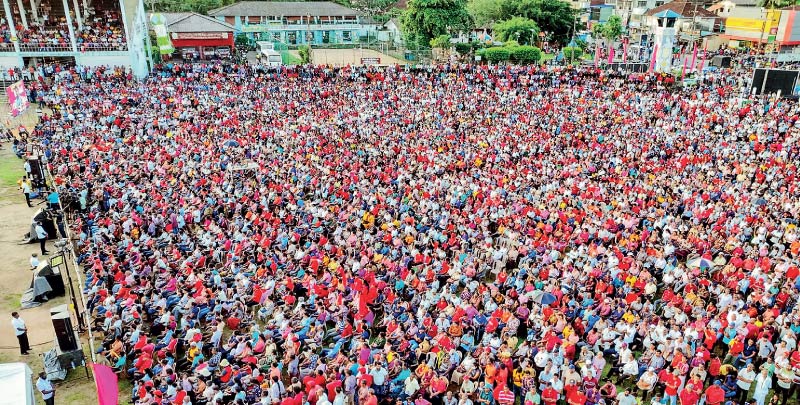
AKD’s campaign kickoff, Horana
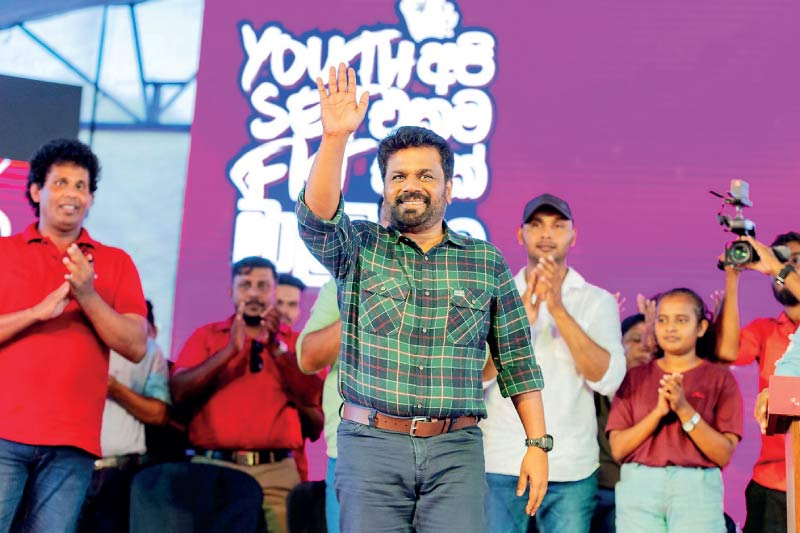
AKD with NPP Youth, Anuradhapura
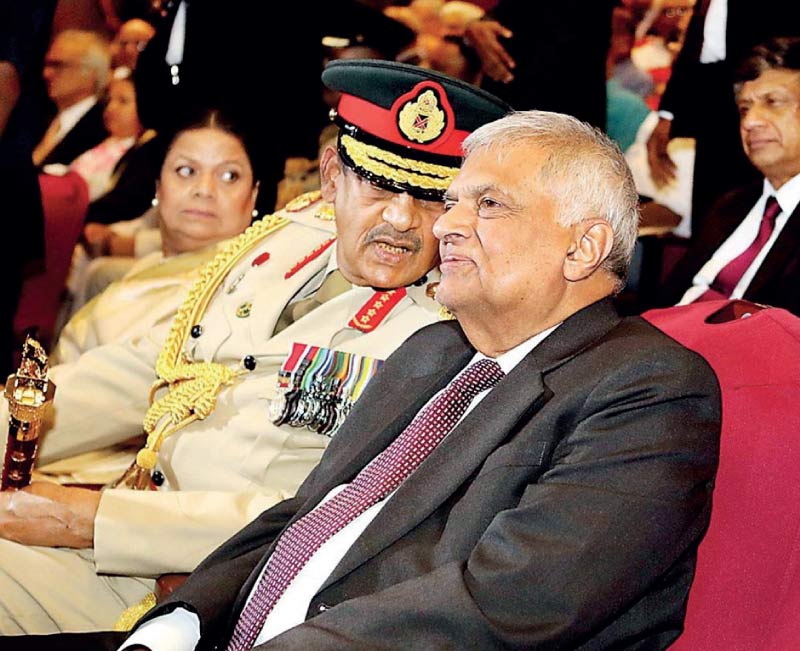
Ghosts of the 1980s Deeds
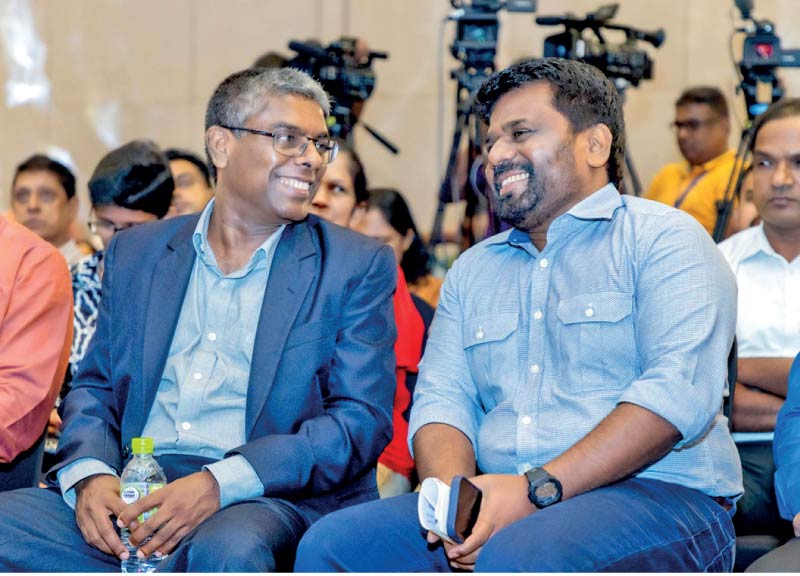
AKD with Prof. Gomika Udugamasuriya, Houston University
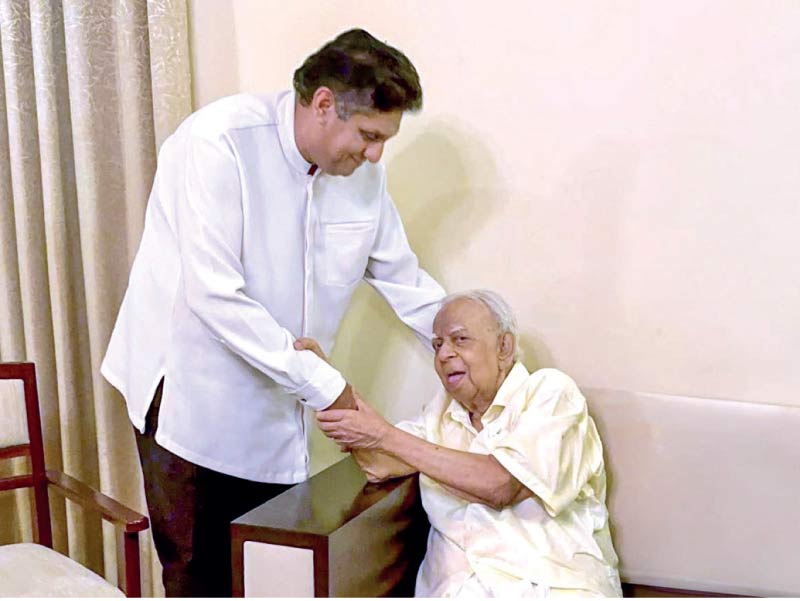
Poignant last greeting
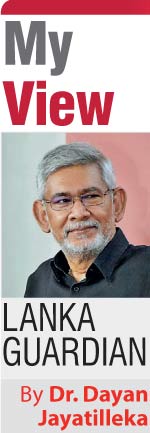 Whatever option you pick as your choice for President, the process of deliberation leading to that choice must entail the initial methodological step of ruling out.
Whatever option you pick as your choice for President, the process of deliberation leading to that choice must entail the initial methodological step of ruling out.
I argue that the candidate we should rule out as a preliminary step is the unelected incumbent President Ranil Wickremesinghe. As a political scientist I shall give five fundamental reasons why. But before that, here’s a personal note.
I’m in my 60s. We are governed by someone in his 70s. Most of our leaders have been in their 60s or 70s. For the first time, those who seek to govern us are in their 50s. My gut-instinct is to help take leadership from the clutches of those a decade older than me and transfer it to the generation a decade younger than me. That’s political evolution, social progress.
Reason 1: Economics
President Ranil Wickremesinghe claims that it is his economic diligence that has prevented the scenes from Nairobi, Kenya— dead bodies in the streets and parts of the Parliament ablaze-- from being re-enacted in Colombo.
The real reason that the heavy taxation imposed by the Wickremesinghe administration has not resulted in anti-tax hike rioting as in Kenya is the imminence of a Presidential election.
Ranil claims a victorious resolution of the debt restructuring issue, but the SJB and Opposition leader Sajith Premadasa drilled a hole in his triumphalism, pointing out that the IMF’s 2023 report had envisaged 2033 as a suitable starting date for Sri Lanka’s debt repayments. Instead of sticking at least to this later date, Wickremesinghe had agreed to an earlier date, 2028, to commence repayment.
What made the victory claim still more dubious was the absence of a ‘haircut’—a point made by the JVP-NPP as well as the SJB. Sajith Premadasa’s critique was particularly pertinent because he promised that if elected, his administration would renegotiate for the restoration of the IMF’s own projected timeline of 2033 as the start-line for repayment.
The opinion of internationally renowned economists conforms to and confirms the statistical evidence: the knottiest node of our debt crisis is that of the International Sovereign Bonds (ISBs). They bear the highest repayment rates in the shortest time. The bulk of the interest repayments are on these bonds. Ranil Wickremesinghe as PM under Yahapalanaya, when the UNP made the economic decisions, is primarily responsible for the high mountain of ISB debt.
The UNP (and the SJB’s Harsha-Eran) claim with no statistical substantiation, that most of that sovereign debt was incurred for repayment of Rajapaksa debt and disbursed as such. Mahinda Rajapaksa asserted in writing that of the debt incurred on his watch only $2.5 billion remained outstanding while the ISB debt incurred by Ranil and the Yahapalanaya UNP amounted to $12.5 billion. So, where and on what did the $10 billion go?
Even if one doesn’t take Mahinda’s word for it, we have yet to be told by the UNP and the SJB economists just when the Rajapaksa debt came up for repayment, when those repayments were made, how much they amounted to, and what happened to the rest.
We also need to know where the $1.4 billion raised by Ranil through the 99-year lease of the Hambantota Port and environs, went.
Furthermore, we have to be told what the ongoing contribution to the crisis is of the Central Bank Bond scam of 2015, which took place on Ranil’s watch.
Thus, we have a debt crisis for which Ranil Wickremesinghe is largely or very significantly responsible, being ‘triumphantly’ resolved last week, with a settlement which actually failed to nail down the IMF’s 2033 repayment deadline and got us a shorter one of 2028, without any real haircut. We are told that this is a good enough reason to vote Wickremesinghe in as President for the first time in his and our lives.
I don’t know about you, but I am convinced that the NPP or the SJB would have at least secured a halfway decent haircut for us, and would have not agreed to a shortening of the repayment deadline.
Wickremesinghe’s fake ‘triumph’ does not include the ISB debt and one cannot help but wonder what sellout he will indulge in and lock the country into on that front.
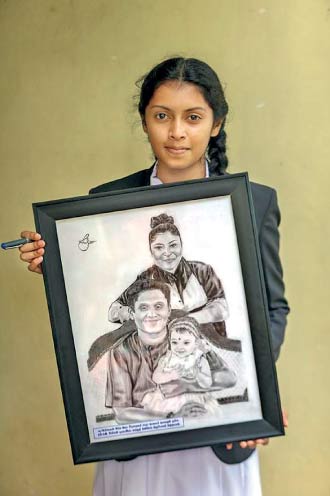 |
| Sajith’s Sakvala leaves traces |
 |
| NPP Youth, Anuradhapura |
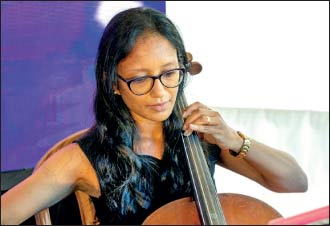 |
| ‘Youth Vibes’, NPP Youth, Anuradhapura
|
Reason 2: Geopolitics, geostrategy
Sri Lanka is located in India’s sphere of influence, but what does that mean and what should it entail?
 It means that among external powers, India has a degree of preponderance in the influence it exercises in Sri Lanka.
It means that among external powers, India has a degree of preponderance in the influence it exercises in Sri Lanka.
 It does not mean that India has a monopoly of such external influence. Sri Lanka reserves the right to permit, even solicit input from Great Powers and Big Powers that are located much further away than India, as a balancing factor, because the chances of conflict of interest arising with non-neighbours is less than with immediate neighbours. (That’s Kautilya’s Arthashasthra, not me).
It does not mean that India has a monopoly of such external influence. Sri Lanka reserves the right to permit, even solicit input from Great Powers and Big Powers that are located much further away than India, as a balancing factor, because the chances of conflict of interest arising with non-neighbours is less than with immediate neighbours. (That’s Kautilya’s Arthashasthra, not me).
 Nor does it mean that India can have a greater influence in Sri Lanka than the Sri Lankan state itself has within its own internationally recognised territory.
Nor does it mean that India can have a greater influence in Sri Lanka than the Sri Lankan state itself has within its own internationally recognised territory.
Wickremesinghe has consciously thrown overboard all these principles of Realism in his dealings with our great neighbour, and in doing so he is jeopardising the national interest most fundamentally, beginning with Sri Lanka’s very existence as an independent entity and prospects of survival as an independent and sovereign nation.
A group of Tamil Nadu fishermen, poaching in Sri Lanka’s territorial waters, caused the violent death of a member of the Sri Lankan navy’s elite Special Boat Squadron (SBS). Delhi and the mighty Indian navy have done nothing to curb these aggressive intrusions though the administration in Colombo is far from adversarial and has been bending over backwards to appease Delhi, accommodating every Indian wish.
Furthermore, pressure from Tamil Nadu, pandered to by the Modi administration, has caused a revisionist revisiting of the Kachchathivu issue settled by Prime Ministers Indira Gandhi and Sirimavo Bandaranaike.
It is precisely to this predatory Tamil Nadu that Wickremesinghe has sought since 2001(in wartime, mind) to build a land bridge. Sri Lanka will no longer exist as a geographically independent entity and will be under the shadow of aggressive Tamil Nadu dominance, reporting to Chennai and not just Delhi, if we were to give Ranil another year in office, let alone five.
Reason 3: Jurassic factor
We’ve missed many chances as a country. The last big one was after the war ended with the defeat of a ferocious separatist-terrorist and totalitarian armed force. We won the war and have lost the peace. I warned against it, as reflected in the title of the fourth of my five published books, ‘Long War, Cold Peace’, the second (2014) edition of which features a long introductory essay by Godfrey Gunatilleke, an intellectual collector’s item.
Children are sometimes able to fulfil the unfulfilled aspirations of parents, even absent ones, or at least go some distance towards them. Hence Barack Obama’s ‘Dreams From My Father’. We now have a chance of using this crisis to progress towards our postwar potential by handing political power and the guidance of the island’s destiny to a successor generation in its mid-50s. Having had different formative experiences, it will bring fresh eyes to the problems that beset us, and fresh energies to the task of their resolution.
Sajith and Anura are only a year apart. Whichever one wins the Presidency, the other can be elected Prime Minister or will at least be the Leader of the Opposition. Thereby the political changeover to a new generation would have been completed.
This country has already wasted most of a quarter of the 21st century: the postwar years. Ranil Wickremesinghe is not only the classic ‘dog-in-the-manger’ who has blocked a President being popularly elected from his own party for a quarter-century, he is the dinosaur blocking the imperative generational evolution in the island’s politics.
Reason 4: Majoritarian backlash
If there has been a second constant in Ranil’s political life, apart from the first and obvious one of never being popularly elected to the Presidency despite a quarter-century of trying, it has been the fact of generating a majoritarian nationalist backlash for which he then becomes the magnet.
This happens even when he has himself fostered Sinhala majoritarian proxies or allied with them. In 2010, Ranil heading a functioning UNP plus Sarath Fonseka, sank Sarath Fonseka. Today, Ranil heading an almost-vanished UNP, plus a much-diminished Fonseka, plus SLPP parliamentarians without their voters, cannot amount to much (even if Patali Champika Ranawaka becomes an add-on).
The reason is easy to figure: it is not that Ranil is always seen as pro-minority but that he is always eventually seen as unpatriotic because of his supineness to non-Sri Lankan, foreign, external interests and elements. This creates the medium in which Sinhala chauvinist populism thrives.
This makes any attempt by him to address minority issues and engage in nation-building, an inherently self-destructive exercise.
The rational, reasonable and fair policy of parity of Sinhala and Tamil languages enunciated by Sir John Kotelawala in Delft in 1956, destroyed the UNP Government’s electoral prospects and turbo-boosted SWRD Bandaranaike, largely because the policy was articulated by Sir John (whose advisor was Ranil’s father Esmond), widely perceived as an unpatriotic pro-Western leader.
Similarly, any attempt at ethnic reconciliation with Ranil at the helm is foredoomed. Therefore, he must be banished from the political stage (as was Sir John), and Anura and Sajith who have no such anti-national stigma must be permitted to undertake that belated historic task, albeit in the tragic absence of Hon. R. Sampanthan.
Reason 5: The ‘Long 1980s’ curse
As a country we went off the rails in the 1980s, or to put it differently, it was in the 1980s that we really went off the rails: the sacking of 60,000 striking workers, postponement of a General Election, an anti-Tamil pogrom, two civil wars, a foreign intervention and military presence, terrorist suicide-bombings, dozens of political assassinations. In 1989, The Economist (London), not given to hyperbole, pronounced that “arguably outside of El Salvador, Sri Lanka is the most violent place on earth”. Prof Robert Pape revealed that the Tigers exploded more suicide-bombers than all the Islamist groups put together.
I was here, living through it all as ‘an observer-participant’ (shall we say), having dropped out of my Fulbright scholarship and doctoral studies in upstate New York, only to restart and complete those studies in self-exile in Australia after my father died at the end of the 1990s, a decade I regard as part of ‘the long 1980s’.
The ‘tsunami of blood’ originated in the decisions of the then UNP Government; its sins of commission and omission. This is no way exculpates the LTTE and the JVP from its barbarism in targeting innocent civilians and political rivals (‘soft targets’) apart from legitimate state targets and enemies (‘hard targets’). These problems were addressed in my first book ‘The Travails of a Democracy: Unfinished War, Protracted Crisis’ (Vikas, New Delhi 1995).
Ranil Wickremesinghe was an active, hawkish member of the UNP Cabinet, front-and-centre in the decisions, their execution (no pun intended) and the parliamentary defence of the indefensible, in the horrendous Eighties.
I know, because I lived the 1980s intensely, experiencing the slaying of unarmed friends and resisting the UNP Government’s harsh authoritarianism and state violence. I was the 1st accused on 14 charges under the Prevention of Terrorism Act and the Emergency, together with 23 others including founder-leader of the Marxist EPRLF, K. Pathmanabha, the 8th accused, indicted in absentia in the High Courts of Colombo. I turned 30 in the 1980s, living ‘Vida Clandestina’ (to borrow the title of the memoir of urban underground existence of Enrique Oltuski, Che Guevara’s young deputy minister).
The 1980s were a roller-coaster, and as the decade ended I was the youngest Minister in the Provincial Council system, and then, President Premadasa’s nominee as Director, Conflict Studies, Institute of Policy Studies (IPS) Colombo, a post which doubled as a ‘flag of convenience’ for a presidential analyst/advisor.
Rajan Hoole and the UTHR-Jaffna’s two-volume tracking of the horrors of the 1980s, unearths the story of one of the most atrocious, the Welikada Prison massacres, with their dismemberments, eye-gouging and mutilations. It makes recourse to the testimony of the respected but hapless Commissioner of Prisons, CT (“Cutty”) Jansz.
The insistent urging or instruction to riot and slaughter came from outside, a notorious visitor named Gonawela Sunil who smuggled in cigarettes and booze to the Sinhala prisoners from outside the prison walls and incited them to massacre the Tamil prisoners. He had been serving a death sentence for the gang-rape of a 14-year-old daughter of a distinguished medical doctor on Galle Face Green. Never recovering from the trauma, she died young. Gonawela Sunil had been pardoned by President JR Jayewardene. He was appointed a Justice of the Peace and employed at the Ministry of Education where his Minister was Ranil Wickremesinghe who was to admit before a Presidential Commission in the 1990s that “Yes, I knew Sunil”. Sunil was executed by the JVP-DJV.
I shan’t revisit the televised, uncontradicted testimony before a Presidential Commission about the torture and executions of youth in the Batalanda complex.
Watching on TV news a recent presentation of a military memoir and a symbolic political crossover which looked like a pantomime on stage, I was reminded of what triggered the unpardonably heinous massacre of over one 120 innocent worshippers including old women in Anuradhapura by the LTTE in mid-1985. To comprehend is not to condone, however. The Anuradhapura massacre was Prabhakaran’s massive retaliation for the locking-up of 80 civilians in the premises of the Public Library in Velvetitturai (VVT), his hometown, and blowing them to bits by detonating high-explosives rigged around the building.
The officer responsible was immediately recalled to Colombo by President Jayewardene, but the next link in the chain of causation was the Anuradhapura massacre, and the one after that, the Thimpu talks under India’s patronage. Qadri Ismail worked with a top US reporter on the exclusive TIME magazine exposé that the LTTE team which carried out the Anuradhapura massacre had been in constant radio communications with its RAW handlers.
For our mental health as a nation, let’s vote out Ranil Wickremesinghe, the last and perhaps personally the most hawkish of the UNP Cabinet of the 1980s responsible for the nightmare we have been living which utterly distorted this country.
Sajith and Anura were not guilty of the criminally awful decisions of the 1980s. They weren’t participants. They were nowhere around when those decisions were made. Unlike Ranil.
It is almost too late to start anew, but we have the chance to do so in 100 days, or “three Poyas hence” as Dr. Harini Amarasuriya calls it, filching a famous countdown phrase of Mahinda Rajapaksa.
Expatriate scholars headed by Houston University’s Prof. Gomi Udugamasuriya flew in for a conclave and launched the NPP’s impressive dossier on Research & Development Policy.
The NPP should construct a similar galaxy and produce its Economic Policy. Lenin would call it “the key link”.